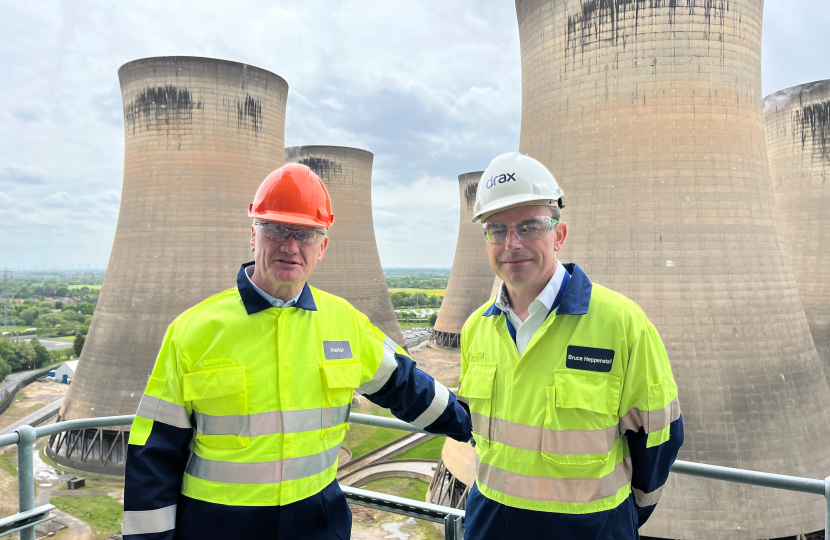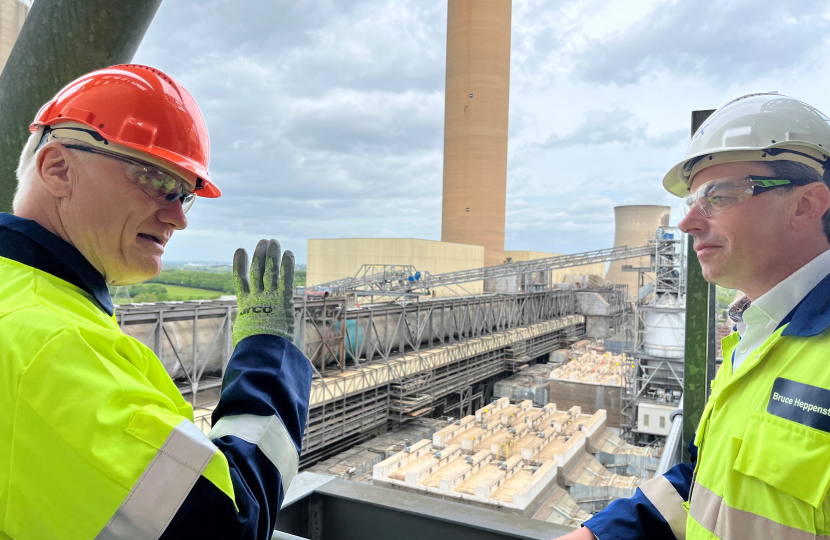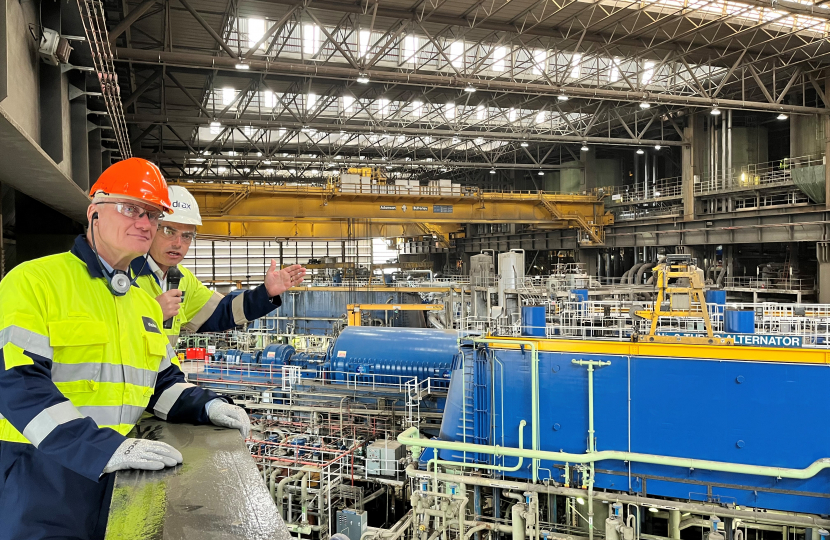Beverley and Holderness MP, Graham Stuart, visited Drax Power Station today to discuss how it will help the UK to improve its energy security and achieve its aim of being Net Zero by 2050.
Drax Power Station provides the most renewable power of any single location in the UK, which is vital for ensuring the UK’s energy security. They have also developed the only shovel-ready negative emissions technology in the UK which, when operational, will remove up to 8 million tonnes of carbon emissions from 2027, support 10,000 green jobs and help make Yorkshire and the Humber a global hub for green investment and innovation.
During his visit, Graham had a tour of the site and spoke with a range of staff members to learn more about DRAX’s decarbonisation project and the wide ranging economic and environmental benefits it will bring to both Beverley and Holderness and the whole of Yorkshire and the Humber. As the weather was fortunately good, Graham was able to go to the roof of the site where he was treated to a wonderful view that spanned almost the entirety of Yorkshire, including Beverley and Holderness.
Following Graham’s visit to the site, Bruce Heppenstall, Plant Director of Drax Power Station, said: “We were delighted to welcome Graham Stuart MP to Drax Power Station, to see for himself the vital role Drax plays in generating reliable, renewable, electricity for millions of homes and businesses. “Drax’s plans to use the pioneering negative emissions technology bioenergy with carbon capture and storage (BECCS) at our North Yorkshire plant to capture 8 million tonnes of CO2 each year from 2030, whilst continuing to generate the renewable electricity the UK needs to ensure secure supplies – no other technology does both. BECCS at Drax will also create and protect tens of thousands of jobs and support levelling up in the North.”
After visiting the Power Station, Graham commented: “It was great to be able to visit DRAX Power Station today to learn more about their ambitious decarbonisation project, which will help the UK achieve its aim of being Net Zero by 2050 and help make Yorkshire and the Humber a global leader for green investment and innovation.”




